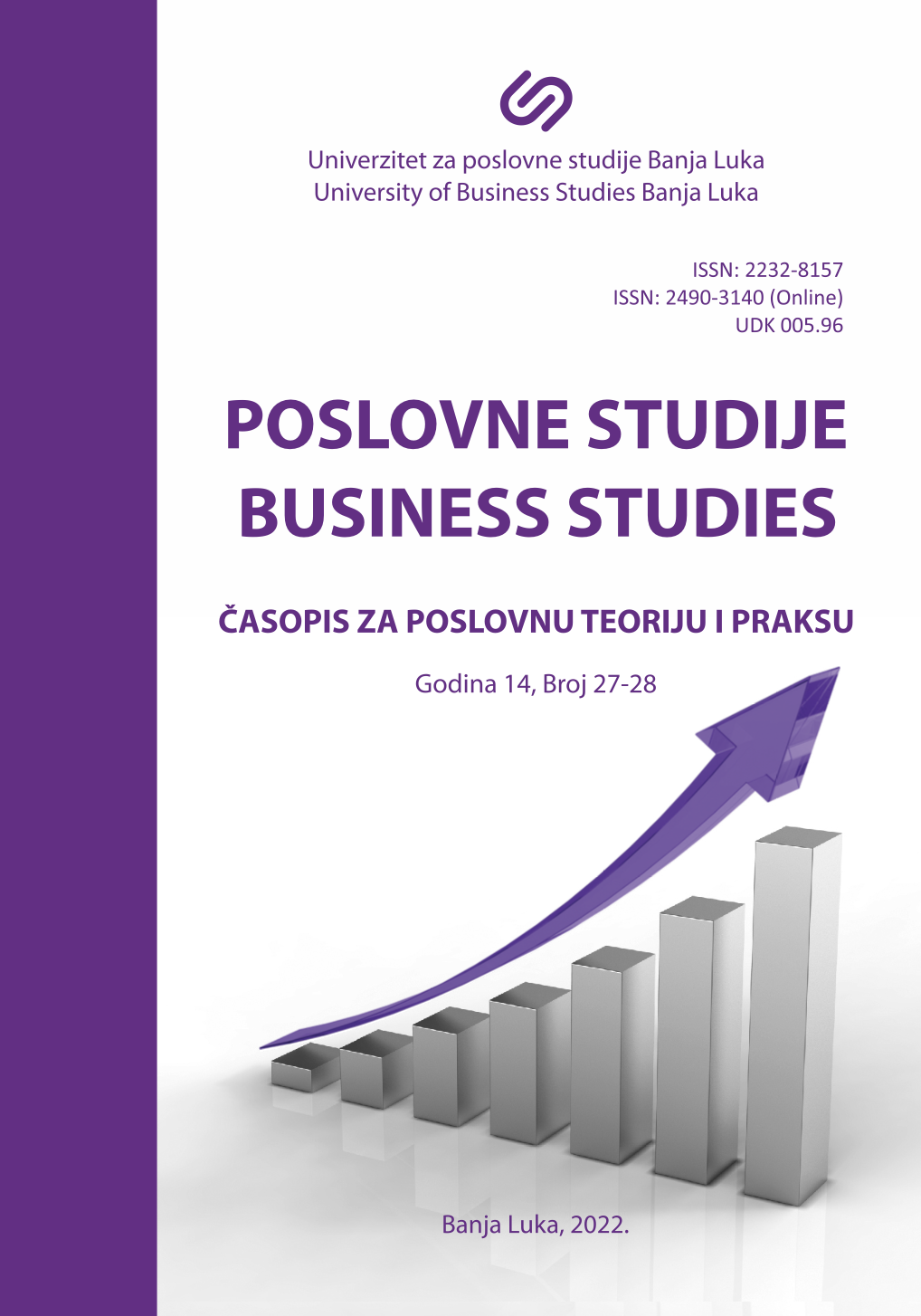THE ROLE OF INTERNAL AUDIT IN IMPROVING FINANCIAL MANAGEMENT AND CONTROL IN THE PUBLIC SECTOR REPUBLIC OF SRPSKA
DOI:
https://doi.org/10.7251/POS2228219RAbstract
The aim of this study is to analyse the efficiency of the use of public funds by budget users in the Republic of Srpska. The hypothesis tested in the research is that internal audit, as one of the three elements in the system of internal financial controls in the public sector, is a key element of successful management and realization of budget users' tasks in a public, economical, efficient and effective way. The study identifies many of factors that may affect the increase in the quality of business of entities from the public sector of the Republic of Srpska. In addition, the research confirmed the hypothesis that the role of internal audit is crucial in terms of financial management and control systems, in assessing the most risky areas, defining control objectives, defining and implementing system review programs in the highest risk areas, and making recommendations to improve controls there where necessary. Bosnia and Herzegovina, a candidate country for membership in the European Union, has begun activities to establish and develop internal audit in accordance with the concept of the system of public internal financial control in the public sector - PIFC (Public internal financial control), developed by the European Commission. In the last few years, there has been an intensive development of internal audit, and efficient public administration has a key role in the European integration process. The paper is based on publicly available literature, primarily legal and other regulations governing the field of financial management and control and internal audit, using data and information obtained from the Central Unit for Harmonization of Financial Management and Control and Internal Audit and taking into account the requirements of International Standards for professional internal audit practice.

